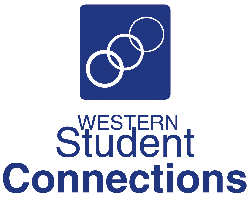ROBOTICS & CODING TRAINING WORKSHOPS
|
STEAM Ahead - Bee-bots and Blue-bots in the Classroom
Workshop Outline:
1. Introduction to robotics and coding – Bee-bots and Blue-bots
- An analysis of the background research and papers which inform the integration of robotics and coding (STEAM) in learning and teaching strategies, for early childhood and early STEAM learners.
- Using Bee-bots and Blue-bots – care, safe and responsible use, commands, coding protocols, algorithms, specific vocabulary, data sets, compatible devices, user input.
- Coding Bee-bots and Blue-bots.
- Sequences, decisions, repetition and problem solving with Bee-bots and Blue-bots.
- Bee-bots and Blue-bots across the full range of abilities
2. Bee-bots and Blue-bots in the classroom
- Online design resources, learning and teaching strategies, assessment and reporting.
- Differentiated strategies to make accommodations and adjustments for inclusiveness.
3. Integrating Bee-bots and Blue-bots in curriculum
- Blue-bot App
- Online lessons
- Developing curriculum resources
- Scope and sequence
4. Bee-bots and Blue-bots Online
- Assessment
- Workshop Evaluation
- Follow-up Activity
|
|
STEAM Ahead - Ozobots in the Classroom
Workshop Outline
1. Setting the Scene & Introduction
- Ozobot robots in education – Primary and Secondary curriculum examples
- Ozobot robots as a valuable education tool – alignment to curriculum, project-based and personalised learning
- Thinking skills – computational, strategic and critical thinking, problem solving, 21st Century skills
- Getting to know the Ozobot robot
2. Using Ozobots with Paper, Pens, Stickers & the OzoDraw App
- Ozobot Basics
- Ozobot online activities and resources (creative activities, storyboarding)
- Using the OzoDraw feature, limitations, extensions, paper & tablet
- Classroom management, safe, responsible and ethical use, security and privacy.
3. Programming the Ozobot Using OzoGroove and OzoBlockly
- Using the OzoGroove feature to make Ozobots dance
- Extensioins with OzoGroove – choreography, designing dance moves
- The OzoBlockly online editor
- Applications across key learning areas, different learning styles and education needs.
4. Curriculum Planning
- Integrating Ozobot robots
- Online resources for Ozobots
- An Ozobot Curriculum Plan
- Evaluation
- Follow-up activity
|
|
STEAM Ahead - Spheros in the Classroom
Workshop Outline
1. Setting the Scene & Introduction
- Sphero robots in education – Primary and Secondary curriculum
- Sphero robots as a valuable education tool – alignment to curriculum, project-based and personalised learning
- Thinking skills – computational, strategic and critical thinking, problem solving, 21st Century skills
- Getting to know the Sphero robot
2. Driving the Sphero
- Apps for the Sphero robot & Bluetooth connection
- Aim and drive the Sphero robot using Drive Mode and the joystick
- Sphero EDU – App features and Modes
- Introductory activities, classroom management, safe, responsible and ethical use, security and privacy
3. Programming the Sphero
- Simple programming using block coding in the Sphero EDU App
- What might go wrong!
- Use programming of the Sphero robot to develop 21st Century skills
- Applications across key learning areas, different learning styles and education needs.
4. Curriculum Planning
- A whole of school STEAM program using the Sphero robot
- Online resources for Sphero robotics
- Javascript coding for Sphero
- Javascript wiki, online Guides, Competitions, Support, Blog, Forum
- Follow-up Activity
- Evaluation
|
|
STEAM Ahead - Scratch in the Classroom
Workshop Outline
1. Setting the Scene & Introduction
- Creative Computing, Design-based Learning and Block Coding, examples, sample projects, terminology and protocols
- Block coding for beginners using the Scratch Jr App to create simple animations that include elements of music, design, drawing, dance, and story-telling
- Integrate the Scratch Jr App in curriculum – online resources, curriculum plans, 21st Century skills
2. Animations
- Scratch MIT web portal – creating accounts, sprites, sequences, loops, parallelism, events, conditionals, operators, data
- Investigating computational practices - being iterative and incremental, testing and debugging, reusing and remixing, abstracting and modularizing
- Defining the processes of computational design – design notebook, resource libraries, and computational creation within the genre of the arts – music, design, drawing, and dance
- Developing an interactive collage, dance party, self-generating drawing, pass-it-on story, multi-scene story
3. Games
- Engaging with computational creation to design simple games. Explore the use of variables in scoring, timers, enemies, levels and rewards
- Develop fluency with computational concepts and practices.
- Explore examples of open-ended design projects and strategies to support, guide and manage a class of coders. Challenges during project development
- Develop a set of rules for self-reflection, providing constructive project feedback and accepting feedback
4. Curriculum Planning
- Essential elements of the Scratch Ed website
- Discussions, Resources and Stories in Scratch Ed
- Using Scratch coding across every subject – Literacy, Maths, Visual & Media Arts, Music, HSIE
- Creative Curriculum Guides, Plans, Resources
- Follow-up Activity
- Evaluation
|
|



